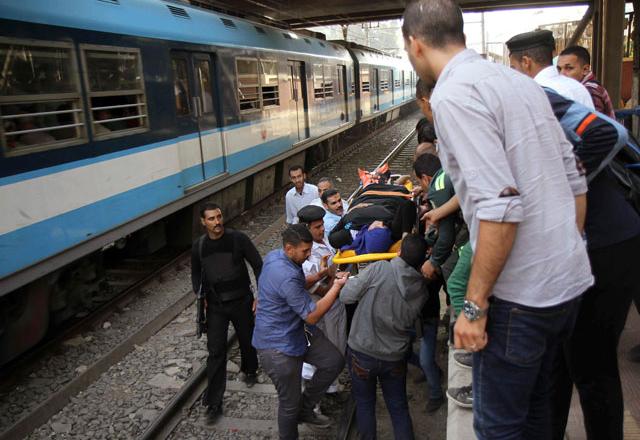You are here
Rights group accuses Egypt of mass demolition of homes in Sinai
By Thomson Reuters Foundation - May 22,2018 - Last updated at May 22,2018
CAIRO, Egypt — Human Rights Watch accused Egypt on Tuesday of mass demolition of homes in the Sinai Peninsula, some of which it said might be illegal, as the military fights a militant insurgency in the remote desert region.
The New York-based rights watchdog said demolitions, which have taken place in recent years to create buffer zones on borders such as that with Gaza, had increased significantly.
They were also being used to punish suspected militants and their relatives.
Egypt’s military did not immediately comment on the report. It has rejected previous reports by HRW on Sinai, saying they relied on “undocumented sources”.
Egypt in February launched a highly-publicised operation against Daesh militants who have waged years of attacks against security forces and more recently against civilians in which hundreds of people have been killed.
As part of a push against the militants, authorities announced they were razing farmland and properties for several kilometres around the town of Al Arish in North Sinai.
After militants stepped up their attacks against Egyptian forces in 2013, the military razed an extensive area along the border with Gaza.
HRW said the authorities had demolished more than 3,000 buildings and razed farmland within a 12 km area along the Gaza border, as well as scores of buildings near Al Arish.
“The total number of buildings demolished so far in 2018 is the largest since the government ordered the eviction of residents from the Rafah buffer zone in October 2014,” it said.
The group also said three witnesses had reported that security forces had destroyed or burned “several buildings” in Al Arish which they claimed suspects or relatives of militants owned.
“The Egyptian army claims it is protecting people from militants, but it’s absurd to think that destroying homes and displacing lifelong residents would make them safer,” HRW’s Middle East Director Sarah Leah Whitson said in a statement.
Reuters could not independently verify HRW’s report. Egypt does not allow international media to travel to North Sinai to report.
Critics say Egypt’s use of conventional military might against militants who have hidden out for years in Sinai is unlikely to clear them from the vast region, which lies on the Red Sea between the Gulf of Suez and the Gulf of Aqaba and is separated from mainland Egypt by the Suez Canal.
Defeat of extremists and restoring stability is one of President Abdel Fattah Al Sisi’s main pledges as he begins a second term.
Egypt’s 2011 popular uprising, which toppled longtime leader Hosni Mubarak, was followed by political instability which severely damaged Egypt’s economy.
Related Articles
A bomb exploded Monday near Egyptian troops demolishing houses along the border with the Gaza Strip, causing no casualties but prompting authorities to raise security alert levels in the area as Egypt clears a buffer zone to halt weapons smuggling, military officials said.
Militants shot dead five Egyptian conscripts in the Sinai Peninsula on Thursday, as the army searched for eight servicemen missing after an attack on a navy boat in the Mediterranean.
ISMAILIA — Egyptian warplanes killed 25 militants in North Sinai on Saturday, security sources said, as the Egyptian president visited the p

















